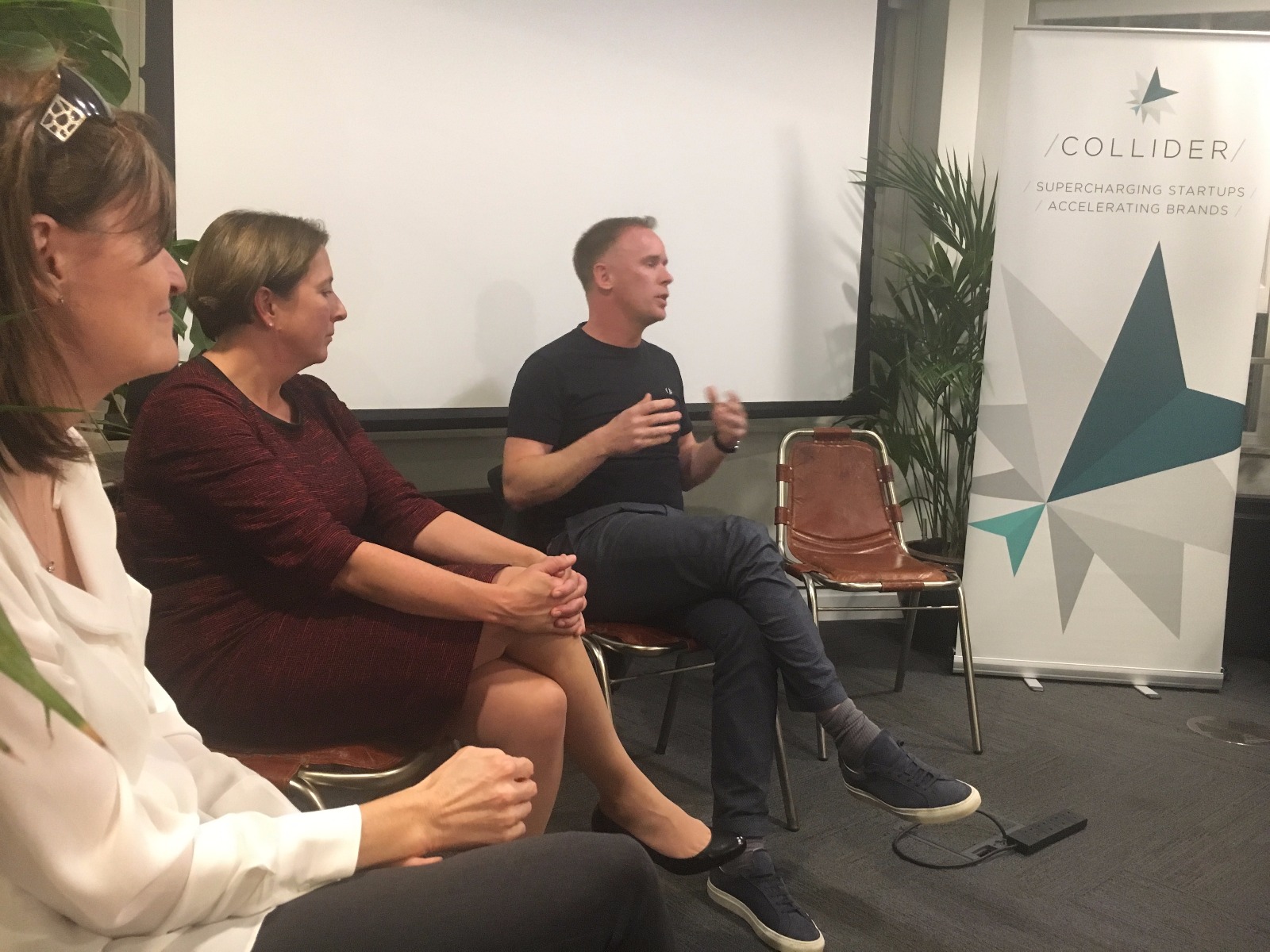 Every year, we scour the globe for up to 10 top madtech startups to join our accelerator – in fact, we’re smack bang in the middle of doing just that right now.
Every year, we scour the globe for up to 10 top madtech startups to join our accelerator – in fact, we’re smack bang in the middle of doing just that right now.
We want to uncover the most innovative ideas, discover teams with incredible hustle and ultimately, find what we believe could be the next big thing in the marketing and adtech space.
Here’s a breakdown of how we find, interview and pick our startups from start to finish.
Inbound: The applications
We invite startups to apply directly to our accelerator using F6S – it’s quick and easy for you and helps to gives us a first look into what it is you’re creating.
Outbound: Referrals
Thanks to the Collider team, investors, brands, mentors and alumni all being submersed in the industry and on top of what’s going on, referrals play a large part in the startups we consider each year.
Keeping an eye out
Proactive research is also a huge part of how we work at Collider. Events, tech hubs and industry specific databases are all ways in which we reach out to start ups.
The two most important things we look for is a signifier that your startup fits into the space we work in, and an impressive idea that sparks our interest.
What are we looking for?
We’re looking for the must have, not the nice to have.
Many of our questions are centred around working out whether we’re the best people to help you, and whether you’ll get the most you can out of our programme.
And you can never under estimate the importance of a great team – it’s incredible to see how significant the people are to the investors’ decisions.
Throughout the entire process, we look at around 600 companies to ensure we really are finding the best in this space.

Stage one – a phone call
This usually lasts around 30 minutes and gives you a chance to properly explain exactly what it is that you’re doing. This process usually happens around September/October time, with our feedback given within 2-4 weeks.
Expect the key question: “What are your main challenges?” We don’t ask this to catch you out – it’s to make sure you’re a fit for our accelerator so we can give you the very best value.
Stage two – Collider Partner chat
This step is for us to get our heads together and discuss as a team: who you are, what it is you’re doing and whether you’re a good fit for Collider, drawing on our previous experiences. A model that most major VC’s also follow, it allows us to bounce off each other and on a high level, how we could see your idea fitting into the market.
Stage three – Pitch to Collider Partners
If you get through to this stage, this is your chance to really impress us from the get go – the aim is to get us talking! We’ll ask you to prepare a five minute pitch, usually followed by a short Q&A.
The most important thing we gain here is seeing what you’re like face-to-face and to get to know the team.
You’ll know within one week if you’re through to the final stage.

Stage four – Pitch to Collider Investors
Selection Day – the big one.
This works in a very similar way to stage three: a five minute pitch followed by a short Q&A, but this is in front of the very people who could be investing in your startup.
Our investors all have incredible and relevant experience in this field, and use this to help curate a list of the very best startups they believe could work in the real world. We start moving fast here – you’ll find out the next day.
Quick tips
If you’re considering applying for our accelerator programme, ask yourself these questions and then come and say hi:
1. How did this project start?
2. What challenges do you face?
3. Why Collider?







 We recently heard from Frederic Court, founder of VC Felix Capital and expert in MadTech investment. Here’s his top tips on investing in this space:
We recently heard from Frederic Court, founder of VC Felix Capital and expert in MadTech investment. Here’s his top tips on investing in this space: Every year, we scour the globe for up to 10 top madtech startups to join our accelerator – in fact, we’re smack bang in the middle of doing just that right now.
Every year, we scour the globe for up to 10 top madtech startups to join our accelerator – in fact, we’re smack bang in the middle of doing just that right now.
